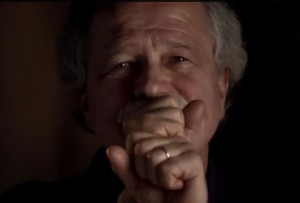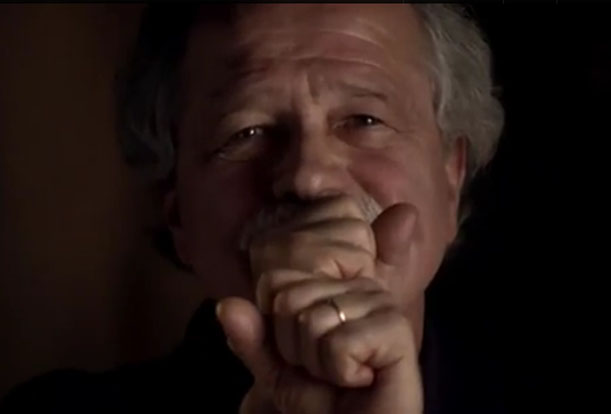 Alex Gibney’s latest documentary takes the first half of its title from a Latin phrase that translates roughly to “my most grievous fault”. It’s a deliberately ironic take on the themes and conclusions therein, since the only personal testimonies here are those of victims – to be precise, pupils at the St. John School for the deaf in Milwaukee, Wisconsin, who suffered decades of sexual abuse at the hands of Reverend Lawrence Murphy, and whose public revelations would be the first accusations of their kind. Gibney’s film is a searing account in which the victims are only the courageous starting point of an investigation that reaches far and high, implicating the Pope and the Vatican in an ongoing complicity with paedophilia.
Alex Gibney’s latest documentary takes the first half of its title from a Latin phrase that translates roughly to “my most grievous fault”. It’s a deliberately ironic take on the themes and conclusions therein, since the only personal testimonies here are those of victims – to be precise, pupils at the St. John School for the deaf in Milwaukee, Wisconsin, who suffered decades of sexual abuse at the hands of Reverend Lawrence Murphy, and whose public revelations would be the first accusations of their kind. Gibney’s film is a searing account in which the victims are only the courageous starting point of an investigation that reaches far and high, implicating the Pope and the Vatican in an ongoing complicity with paedophilia.
Developing and enhancing wide, established suspicions regarding the Catholic Church, Silence in the House of God foregrounds the experiences of five key witnesses – Gary Smith, Arthur Bundinski, Terry Kohut, Pat Kuehn and Bob Bolger – all of whom were Murphy’s victims whilst attending St. John School in the 1950s. Shot in ultra-crisp HD, talking heads draw attention immediately to the candid expressiveness of the film’s interviewees: their facial gestures are animated, the sound of their hands slapping together in signing has a sharp urgency. Gibney opts for stars such as Chris Cooper and Ethan Hawke to lend vocal translation, which gives a possibly unnecessary actorly quality to proceedings, while brief expository reconstructions of past events risk undermining the power contained in the witness testimonies.
Taking wide-scale sex abuse within the Church as a given, the film’s main thrust is less to do with exposing hitherto unknown truths than it is providing its brave interviewees an outlet through which they might be able to re-establish a sense of self. As a working-through of their personal and shared traumas, it’s a sometimes-devastating film that seeks also to place direct responsibility on the Church itself, including its very upper echelons. If this latter agenda risks derailing the human element, Gibney is careful to bring things full circle: though his principal interviewees are almost forgotten at one point, the final say belongs to them.
Broadening its earlier narrow focus, Silence in the House of God includes talking heads from figures such as canon lawyer Thomas Doyle and Richard Sipe, a former Benedictine monk who weighs in with the opinion that clericalism enables the sort of illegality that police call “noble cause corruption”: that the broad social assumption that the priesthood is morally pure and immune from criminal activity accommodates a culture that “selects, protects, cultivates, defends and produces” sex offenders. We learn of how certain, older students were made dorm masters in order to groom younger pupils in a systematic regime of child abuse. One key witness tells us bluntly that he was at one point one of Murphy’s favourites; “he enjoyed watching me ejaculate”. It’s heartbreaking to watch these men recall their confusion as adolescents, to be molested and violated by the one figure of authority from whom they had sought approbation and in whom had placed their trust.
Gibney wants to (and does) open his attack to the Church, bringing into question the validity of claims that the Vatican is even a state; rather, as one witness suggests, its statehood is the outcome of “historical anomaly” – having had it granted by Mussolini’s fascist regime in return for a political compliance. Its so-called laws, romanticised as an omertà, are, in short, nothing more than a cover-up carried out in bad faith. The Church is painted as a vast, unthinkably wealthy conspiracy whose public claims to self-investigate and –correct are means merely of keeping up appearances. Appointments of clergymen to carry out such internal investigations are, an interviewee claims, intended simply to “snuff out scandal… that’s the worldwide policy”. As the film has it, there is a systematic coercion and deception in the Vatican’s attempts to negate any sense of ‘self’ in its victims. Keeping everything in-house denies an audience; without the latter, a victim’s identity is negated, hence their tendency to blame themselves. Gibney’s documentary redresses this gross injustice in a gutsy and legitimately incendiary manner.
‘Mea Maxima Culpa: Silence in the House of God’ is part of London Film Festival’s ‘Documentary Competition’ and screens on Sunday 14th and Thursday 18th October.




